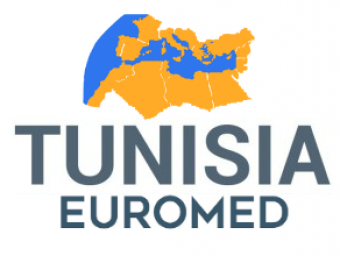Will Tunisia, the countries of the Maghreb and the Sahel and Sahara region be entitled to a period of stability, economic recovery, sustainable development and democratization?
This question was recently addressed by around thirty Tunisian, Maghreb and Euro-Mediterranean experts, during a conference-debate on the upcoming elections in Libya and the geostrategic effects of the new conflicts between Rabat and Algiers.
Participated in this conference – debate of experts from the Averroès center for Arab-African strategic studies, from the association “Tunisie Compétences” and from “NDAW” (Network of Democrats of the Arab World, the “Network of Democrats of the Arab World” “).
The presentations and discussions focused on the regional and global dimensions of the new political, security and geostrategic conflicts in Libya, in the Maghreb, Sahel and African Sahara regions and in the Mediterranean.
“Report” of the elections in Libya
Speakers confirmed that internal and international conflicts in Libya are worsening and risk causing the “postponement” or even cancellation of the presidential and legislative elections scheduled for December 24, 2021.
According to the majority of experts, this is a “proxy war” whose fate is linked to the military, security and political conflicts which have paralyzed most of the countries of the “greater Middle East” for twenty years and especially since. 2011 and the outbreak of the “Arab revolutions”.
Internal, regional and international conflicts of interest risk to abort the “political resolution processes” of “civil wars” in Libya and in other countries of the region, notably in Tunisia, the “destabilization” of which would have an impact. . very dangerous for its neighbors and for the whole Euro-Mediterranean region.
No description available.
Interference
These same conflicts of interest complicate the differences and tensions between the countries of the Maghreb, the Sahel region and the Sahara. They accelerate “foreign interference” and the risks of new tensions, in particular between Morocco and Algeria, Mali, Nigeria, Niger, Chad, Sudan, Djibouti or between Egypt and Ethiopia. …
The participants explained the involvement of dozens of countries around the world in international conferences on the conflicts in Libya, Syria, Sudan, Mali, etc. by the “divergences” and “new conflicts of interest” between them. main foreign players in these countries, including France, Russia, China, Turkey, the United States, the Gulf countries and Israel.
Algiers-Rabat conflicts
The risks of instability and insecurity have increased after the emergence of new tensions between Algeria and Morocco and the rise in tensions in Mali, south of the Sahara and in the eastern Mediterranean between the major European capitals, Ankra, Beijing, Moscow and Washington.
Moroccan and Algerian speakers noted the gaps by analyzing the emergence of the new tension between Rabat and Algiers and the causes of the new security threats.
However, the majority of speakers called for a high-level Algerian-Moroccan political dialogue to avoid all scenarios of the outbreak of an “armed confrontation”, the opening of borders and the revival of bilateral and regional cooperation.
No description available.
For the Libyan dossier, the speakers recommended to the political decision-makers of the countries of the Maghreb, the Arab world and the Euro-Mediterranean region to “overcome their classic quarrels” and their “proxy wars” to succeed in playing a role in life. Politics. to treat. then at the stage of “reconstruction” and “reinvestment”. Otherwise the big world capitals will have the last word and will have the opportunity to marginalize the neighboring countries of Libya in the “next big markets”.
Calls were made for the evacuation of foreign forces and militias established throughout Libyan territory, while strengthening security and preventive measures to prevent the “flight” of mercenaries and terrorists to Tunisia and others. neighboring Libyan countries. .
However, international engagement with political and democratic processes in Libya could be an opportunity not only for the Libyan people, but also for Tunisia and the region.
